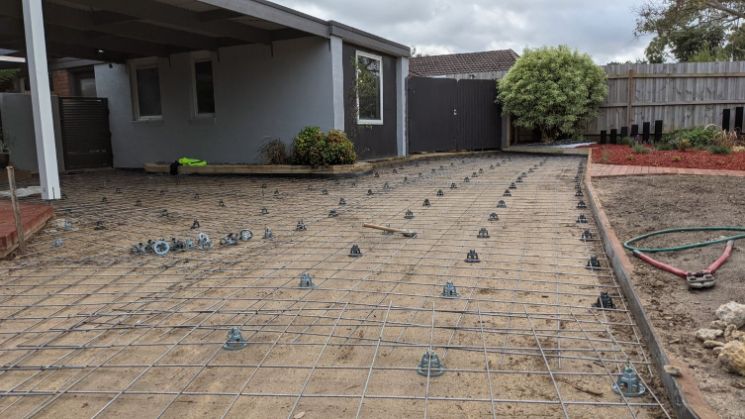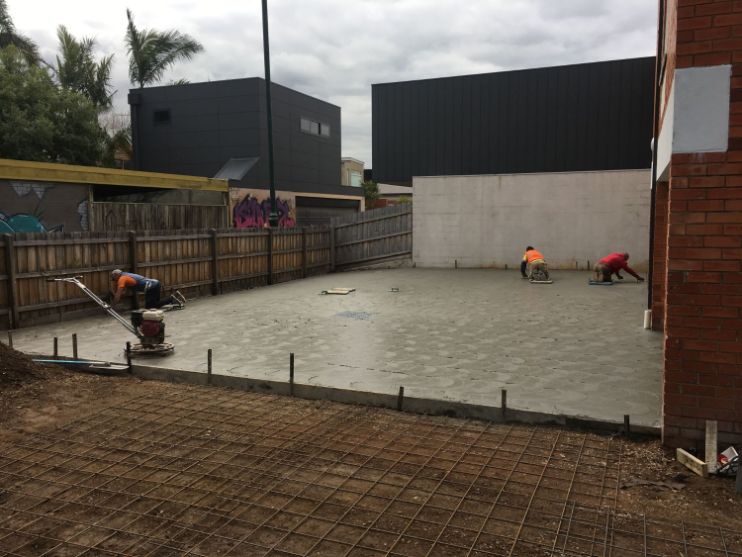The main difference between concrete and cement is that cement is a key component used in the production of concrete. A mixture of cement, water, and aggregate is how concreters create concrete.
As cement is combined with water, it forms a paste that solidifies over time through a chemical reaction referred to as hydration. Cement acts as the primary adhesive in concrete, giving it the strength to hold the aggregate together.
For this blog, we’ll address the frequently asked questions about concrete and cement and highlight the qualities that make them excellent building materials.
What Makes Up Concrete?
Concrete is a mixture of cement, water, and aggregate such as crushed stone, gravel, or sand. The proportions of these ingredients will vary depending on the type of concrete and its intended use.
Additionally, concreters may add various chemicals to the mix to enhance the product’s final quality.

What Makes Up Cement?
Cement is produced by blending minerals such as clay and limestone and other substances like iron ore or ash. These raw materials are ground together to form a fine powder, which is then heated in a kiln.
The resulting substance, known as clinker, is then ground into a finer powder to produce the final cement product.
Which One Should I Use: Cement or Concrete?
One should employ concrete for construction projects such as driveways, foundations, and accessways due to its added strength and durability. These qualities make it a suitable option for constructing concrete structures.
In contrast, cement is a key component of concrete. Although it’s quite strong on its own, it simply can’t match the structural stability that concrete provides. Typically, individuals make use of cement when carrying out repairs or patching existing surfaces.

How Will I Know If My Concrete is Good?
These are the main traits of quality concrete:
- Easy to work with: The consistency and ease of concrete application is important for concreters to work on various construction projects.
- Adequate strength: Concrete must be strong enough to withstand heavy loads and stresses, especially in applications like driveways.
- Sufficient air content: Good concrete must contain enough air to improve workability and reduce the risk of cracking during the curing process.
- Sturdiness: Concrete must be able to resist the elements and remain durable for a long period of time.
- Appropriate curing: Proper curing of concrete is necessary to ensure its strength and durability over time.
These are the biggest things you should know about concrete and cement. Hopefully, you now have a better idea of what these two products have to offer.Have you ever wondered, “Is coloured concrete worth getting?” Find out by reading our blog post today.
